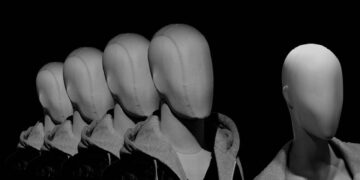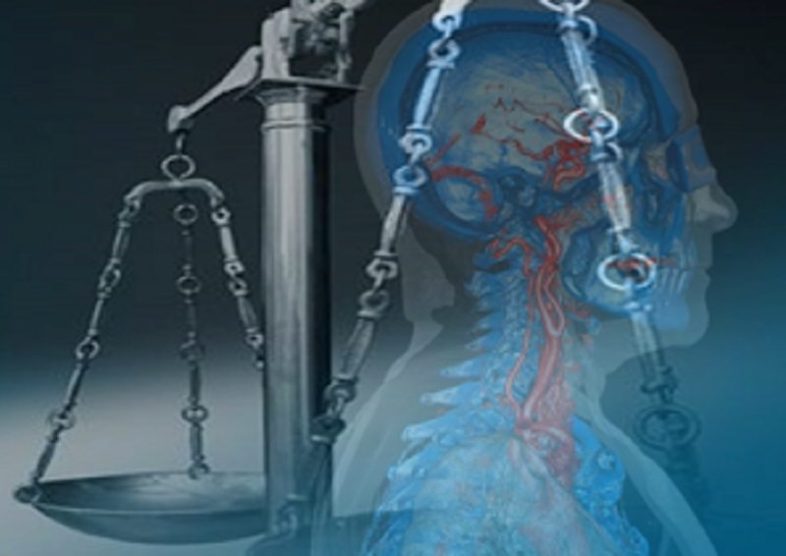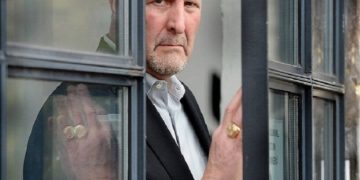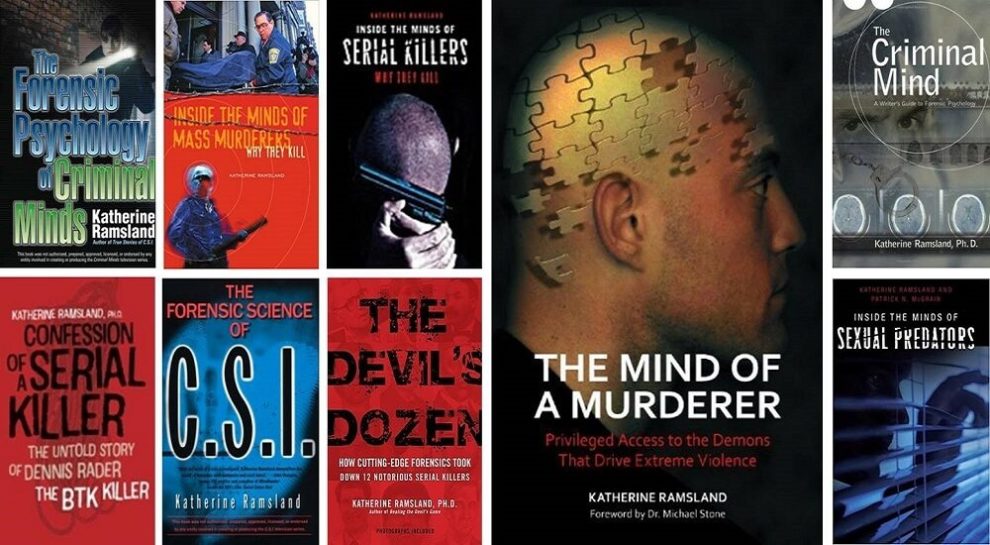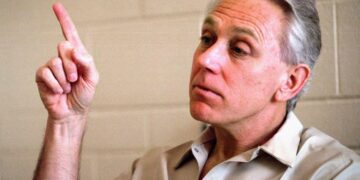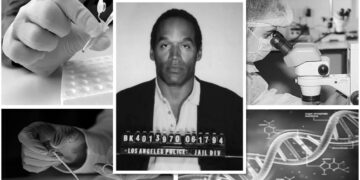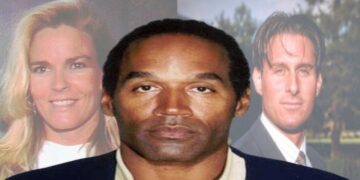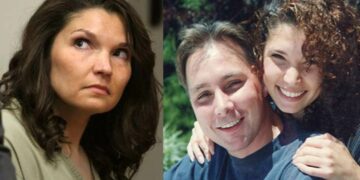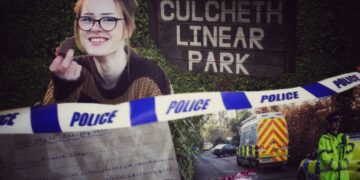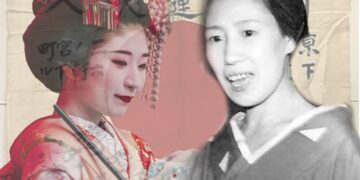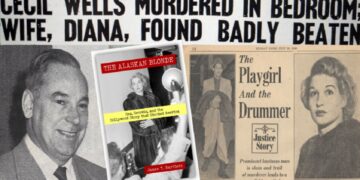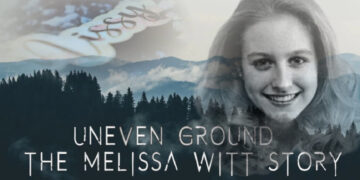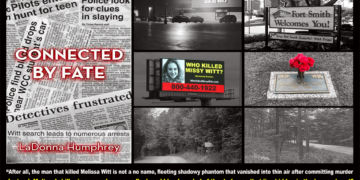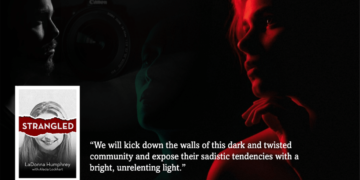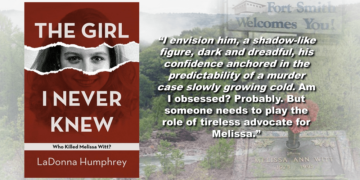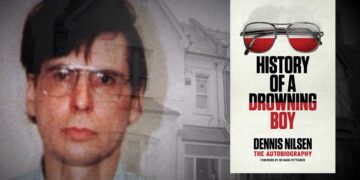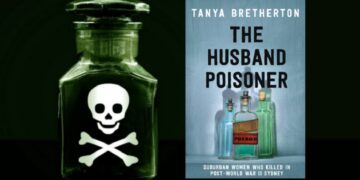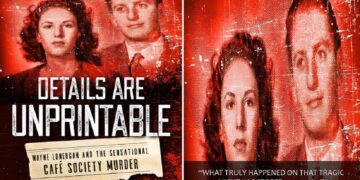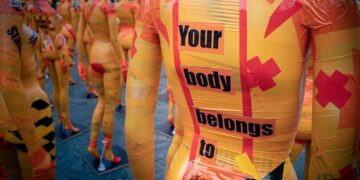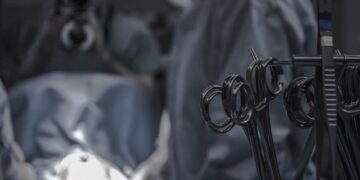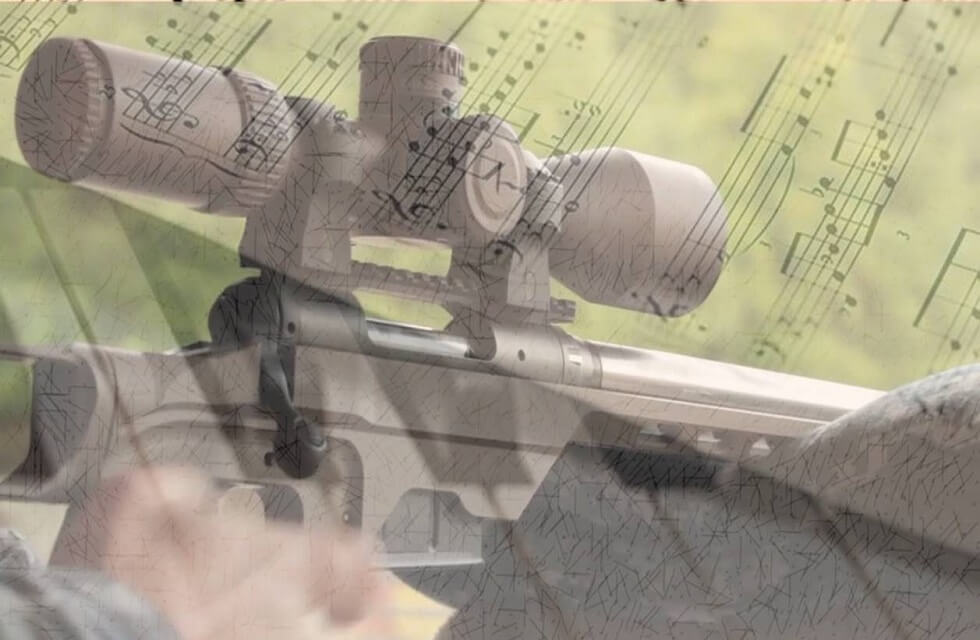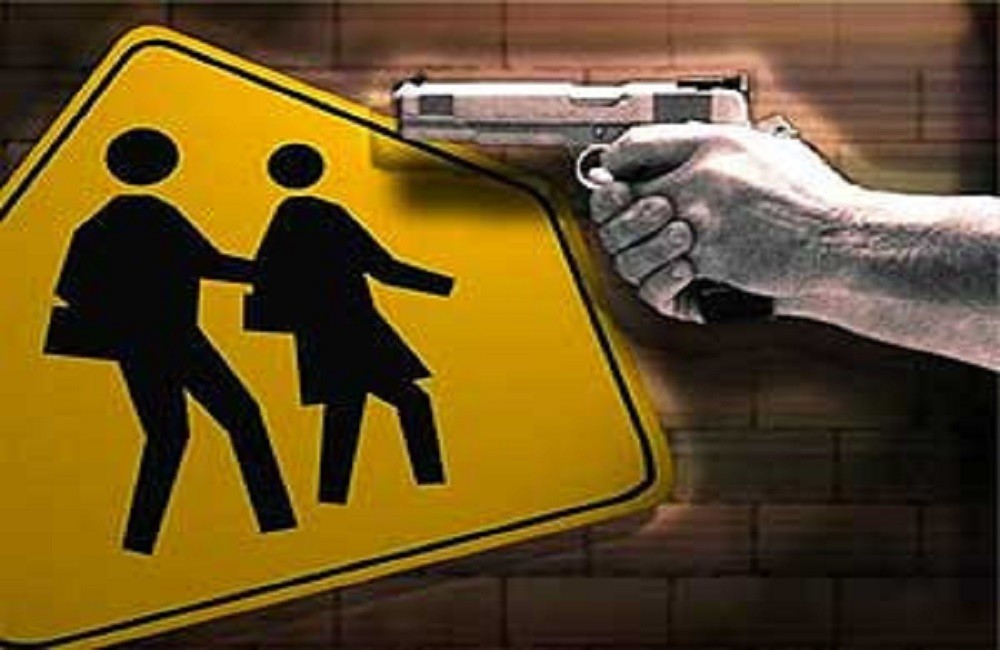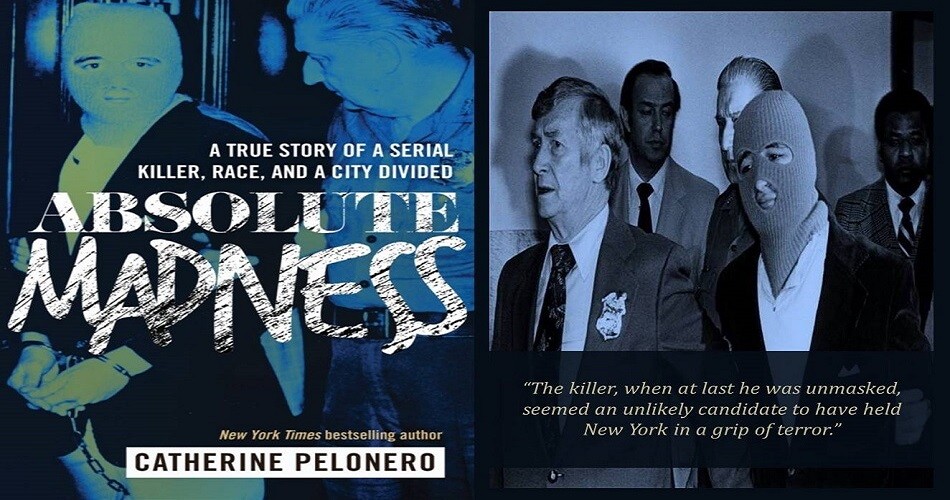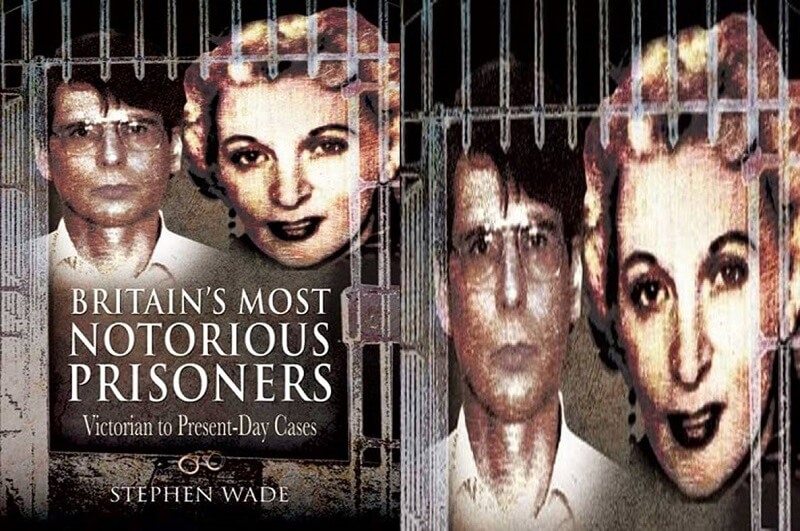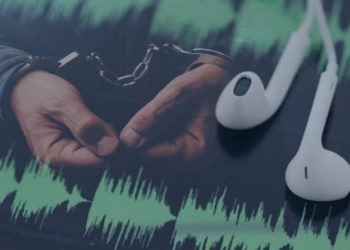A guest post by William Sanford, an attorney and freelance writer living in Rhode Island, where he writes about true crime and New England history. He can be contacted at [email protected].
On the afternoon of December 30th, 1974, seventeen-year-old Anthony Barbaro entered his high school in upstate New York armed with guns, explosives and a recording of Elton John’s 1974 ballad, “Ticking.”
Barbaro climbed the stairs to the 3rd floor, where he prepared to aim his high-powered rifle out the window. There he encountered a 62-year-old janitor who was responding to reports of a disturbance. Barbaro shot him in the chest, killing him. He then returned to his improvised sniper’s nest and began shooting down at the street below. He killed a 58-year-old gas company employee walking on an adjacent street. Then, he trained his rifle on a 25-year-old pregnant woman, driving by the school. He shot her the head, killing her and her unborn child. Barbaro went on to shoot seven others who would survive their wounds. Police and National Guard finally entered the school and pelted Barbaro’s position with tear gas. He was taken into custody after the gas mask he had brought along malfunctioned.
At some point during the incident, Barbaro pressed the “Play” button on a cassette player that he had carried with him, and so Elton John’s “Ticking” became the soundtrack for his violence.
Anthony Barbaro was born in 1957 in Olean, New York, a small town south of Buffalo. He was the son of an executive; the youngest of four children. He served as an altar boy at his local Catholic Church. Barbaro excelled academically at Olean High School where he was a member of both the National Honor Society and the Rifle Club. He was frequently described as “quiet” and “a loner.”
“The boy is not an outsider. He’s one of our own and his family are very reputable people. In a small town everyone knows everyone else.”
Mayor William O. Smith
We know that Barbaro planned extensively for the shooting; police found notebooks in his bedroom detailing his plans to wreak havoc on his hometown. But over forty years later, his motivations remain largely unknown.
At least one friend has claimed that Barbaro was alienated by his homosexuality. Others have suggested a dysfunctional — perhaps oppressive — home-life.
Even if these characterizations of Barbaro’s life are accurate, how did they lead to the violent acts that followed? Was mental illness involved? Was Barbaro a victim of bullying? There have been few answers. But maybe we can progress toward answering another, admittedly less profound question: Why did Anthony Barbaro choose to play “Ticking” as he fired down on the streets of Olean?
Elton John’s seventh studio album, “Caribou,” was released in 1974. While the album would never match the success of its predecessor, the classic “Goodbye Yellow Brick Road,” it would go double platinum, producing two hit singles: “The Bitch is Back” and “Don’t Let The Sun Go Down on Me.” The album’s final track, “Ticking,” clocks in at 7:30 minutes long. This sparse piano ballad with lyrics penned by longtime collaborator Bernie Taupin, tells the story of a young man who embarks on a shooting spree. Is this the reason Barbaro chose to play “Ticking” as the accompaniment to his own shooting spree — is it as simple as that? Or was there more in “Ticking” that spoke to Barbaro? Did he play the song for motivation, to urge himself on? Or was he trying to convey to the world something about himself and his motivations?
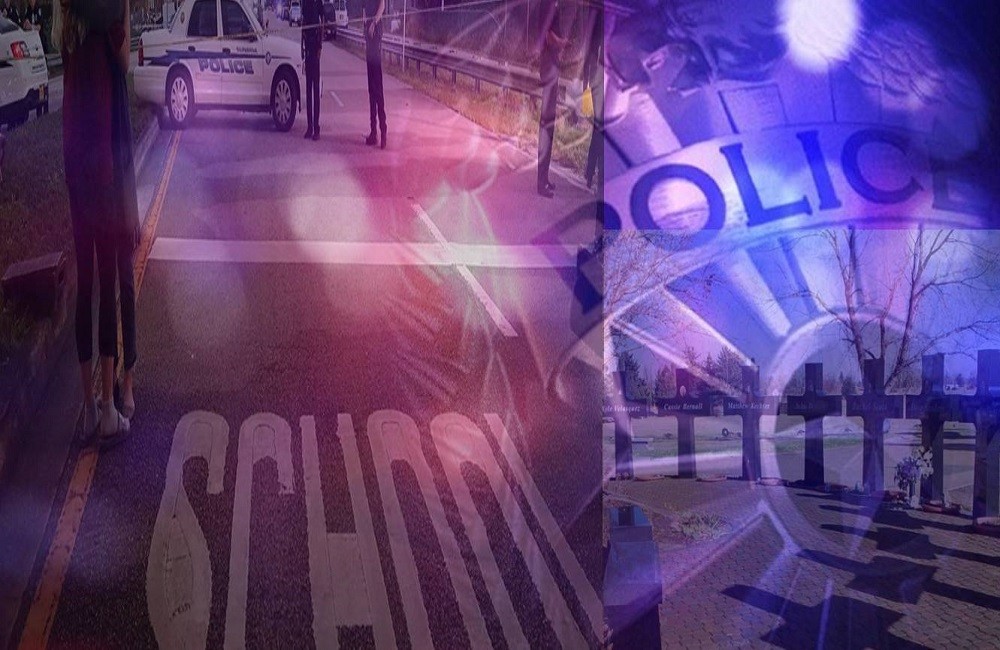
In examining “Ticking” more closely, it is perhaps easiest to begin with what the song is not. It is not a glorification of violence. It is not a revenge song, or even an angry song. Could Barbaro have chosen a song that played upon some of these emotions? While it may be unfair to assume that he sat down and auditioned song choices, there were certainly songs around in 1974 with darker, angrier tones. If Barbaro had wanted to play, for himself or for the rest of us, a song of hate and antisocial angst he probably would not have chosen “Ticking.”
Now to what “Ticking” is.
“An extremely quiet child, they called you in your school reports.
He’s always taken interest in the subjects that he’s taught.
So what was it that brought the squad car screaming up your drive.
To notify your parents of the manner in which you died?”
“Ticking” begins with these lyrics, whose sentiment has become the cliched introduction to nearly every tale of the killer next door. The last two lines of the first verse hint at a tragedy — one that this young man’s parents will not be able to reconcile with the boy they thought they knew.
Next we are told:
“At St. Patrick’s every Sunday, Father Fletcher heard your sins.
He’s unconcerned with competition, he never cares to win.
But blood stained a young hand that never held a gun
and his parents never thought of him as their troubled son.”
Here we are introduced to the religious theme that will continue throughout the song. Could this be a further reason that Barbaro identified with“Ticking”? He was raised catholic and reportedly served as an altar boy. This verse also continues a thread begun in the first: Whatever lack of interest their son expressed in typical adolescence pursuits, his parents did not view him as dangerous.
Ticking’s first chorus introduces a recurring maternal figure, as well as the songs foreboding refrain:
“You’ll never get to heaven,” Mamma said, remember Mamma said.
Ticking, ticking.
Grow up straight and true blue, run along to bed.
Hear it, hear it, ticking, ticking.”
The scene then shifts to a bar in New York City. Scared patrons try to calm a young man who appears to be unraveling before their eyes.
“They had you holed up in a downtown bar, screaming for a priest
Some gook said “His brain’s just snapped.” Then someone called the police.
You’d knifed a Negro waiter who had tried to calm you down
Oh you’d pulled a gun and told them all to lay still on the ground.”
Taupin portrays the stabbing of the waiter as a sudden (“his brain’s just snapped”) violent outburst. While we are not told the young man’s reasons for coming to the bar, there is nothing here to suggest this incident was part of any well-thought-out plan. This is in contrast to the clearly premeditated Olean High School shooting.
Related
Then the violence escalates:
“Promising to hurt no one, providing they were still
A young man tried to make a break, with tear-filled eyes you killed
That gun butt felt so smooth and warm cradled in your palm
Oh your childhood cried out in your head “they mean to do you harm.”
This verse, perhaps more than any other, offers insight into the type of shooter that Taupin sought to depict. The first line suggests that Taupin’s character may not have intended to shoot anyone in the bar. He promises “to hurt no one” then pulls the trigger only after his instructions to the patrons are ignored. When he does shoot, he does so “with tear-filled eyes.” Whether these tears are from the shooter’s own inner pain, his remorse for his actions, or both; we are left to wonder. We know he finds some comfort in the gun “cradled in his hand.” But what (or who) was it from this man’s childhood that caused him to perceive these bar patrons as a threat?
And there is no bloodlust or sadism in the verse above. The tone is one of sadness — even pity –for the shooter. There are no verbs of volition or choice: we are shown a reluctant character pushed into action by events in his past. Is this how Barbaro wanted us to see him?
Then “Mama” is back, admonishing her son:
“Don’t ever ride on the devil’s knee” Mama said
Remember mama said
Ticking, ticking
Pay your penance well, my child
Fear where angels tread.”
And again the warning:
“Hear it, hear it, ticking, ticking.”
The tragedy culminates in the next verse:
“Within an hour the news had reached the media machine
A male caucasian with a gun had gone berserk in Queens.
The area had been sealed off, the kids sent home from school
Fourteen people lying dead in a bar they called the Kicking Mule.”
Unlike in the previous verse, there is no reference here to the shooter’s emotional state, or possible motives. So what has transpired in the space between verses? We are offered no explanation. But the damage has been done: fourteen people are dead.
In the song’s final verse, Police arrive and demand the shooter’s surrender:
“Oh they pleaded to your sanity for the sake of those inside
Throw out your gun, walk out slow just keep your hands held high.”
Then in what is likely the song’s most vivid, lasting image, Taupin paints a picture of the young man as he is pelted by gunfire:
“But they pumped you full of rifle shells as you stepped out the door.
Oh you danced in death like a marionette on the vengeance of the law.”
It is not uncommon for mass shooters to seek out this sort of finale — it has come to be known as “death by cop.” As we will see, Barbaro appears to have sought a similar outcome. But in this verse, the portrayal is one of overzealous cops taking down the shooter as he attempts to surrender.
“Mama’s” last words to her son are delivered, too late:
“You’ve slept too long in silence” Mama said
Remember Mama said
Ticking, ticking.
“Crazy boy, you’ll only wind up with strange notions in your head
Hear it, hear it, ticking, ticking.”
This verse evokes a familiar narrative: A quiet young man buries his angst, until it can be contained no longer. His mother warns him he’ll “wind up with strange notions” in his head — but we know from the preceding choruses that she is likely the one who planted these “notions.” And all of this, the whole song, builds toward the last refrain: “Hear it, Hear it, Ticking, Ticking.”
It is worth pausing to consider these last lines. They must have been important to the story Taupin sought to tell. They are repeated several times and they give the song its title. They conjure a vivid image: of a clock, a timer, or a time bomb — a mechanical device that once set into motion (by whom?) will continue relentlessly ticking toward an inevitable outcome. Is this how Barbaro viewed his life? Is it how he wanted us to view it?
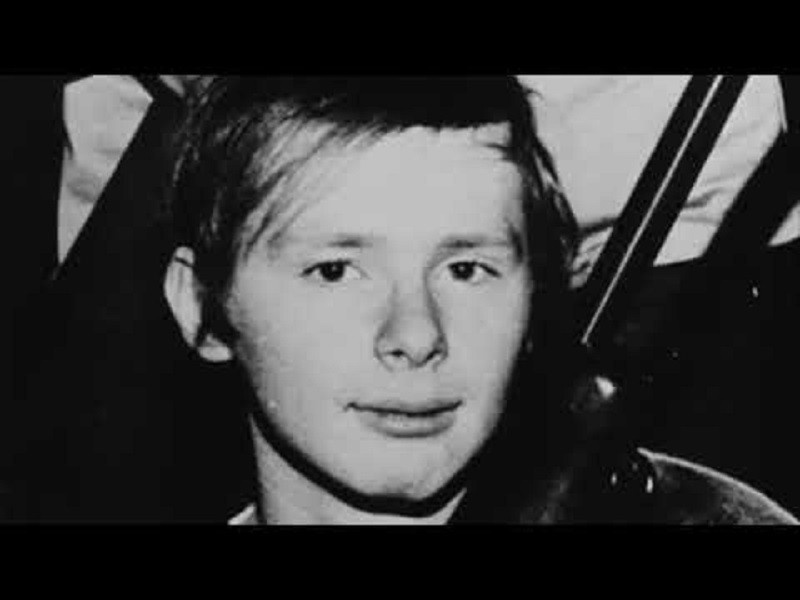
Following his arrest, he was charged with 3 counts of murder. He spent 10 months in jail, awaiting trial. On November 1st, 1975, on the eve of his trial, guards entered Barbaro’s cell to find him hanging from a bedsheet. He left multiple suicide notes, one of which read, in part:
“I guess I just wanted to kill the person I hate most – myself, I just didn’t have the courage. I wanted to die, but I couldn’t do it, so I had to get someone to do it for me. It didn’t work out.”
Another note read, in part:
“Some will always ask, ‘Why?’ I don’t know — no one will. What has been, can’t be changed. I’m sorry. It ends like it began; in the middle of the night, someone might think it selfish or cowardly to take one’s own life. Maybe so, but it’s the only free choice I have. The way I figure, I lose either way. If I’m found not guilty, I won’t survive the pain I’ve caused— my guilt. If I’m convicted, I won’t survive the mental and physical punishment of my life in prison.”
Though we will likely never know if he assumed his choice of song would be reported in the media (it appears that few of the many newspaper articles written about Barbaro mention “Ticking”), he did choose “Ticking” as his accompaniment. It may not be a stretch to view the song as an overture to his suicide notes. Taken together, they comprise his last testament. What was he trying to say?
As we’ve seen, “Ticking” is a compassionate, empathetic song. Its main character is tormented by demons from a shadowy childhood, convinced that those he encounters mean to do him harm. He is reluctant to pull the trigger, then instantly regretful after he does. Finally, he is cut down by police as he attempts to surrender.
In Barbaro’s suicide letters (at least those to which we have access) he casts himself in a similarly pitiful light. There are no homicidal rants against those who may have wronged him. The only hatred expressed by Barbaro is aimed inward: “I guess I just wanted to kill the person I hate the most: myself.” he writes. In words that depict him as a victim of his own actions, he writes about the things he regrets he will never be able to do or enjoy (foods he won’t get to taste, sights he won’t get to see). And he regrets the corner that he has painted himself into: “If I’m found not guilty, I won’t survive the pain I’ve caused —my guilt if I’m convicted, I won’t survive the mental and physical punishment of my life in prison.” As to the sincerity of these words — we will never know.
And can we ever really know why Barbaro turned to mass murder? On this topic both he and Taupin were elusive. “Some will always ask, “Why?” I don’t know — no one ever will.” he writes. Perhaps he knew more about his own motivations, but chose not to reveal them. Or perhaps both he and Taupin danced past the answers, because they truly just did not know. If so, they are not alone.
“Ticking” is not the only song to address such questions. In 1979, Bob Geldof of The Boomtown Rats wrote “I Don’t Like Mondays” about a real-life mass shooting outside a San Diego Elementary School. In examining the tragedy from the perspective of the teenage shooter’s baffled father, Geldof wrote:
“He can see no reasons, because there are no reasons, what reason do you need to be shown?”
Geldof is not suggesting that there are literally no reasons for such tragic events. But what of the reason, the one reason that would explain how teen alienation and troubled childhood can sometimes lead to mass murder, the one reason that might somehow make it all OK? For those who knew and loved the victims of Anthony Barbaro’s shooting there is likely no explanation that could bring this ultimate level of understanding. It is as Geldof asks, “What reason do we need to be shown?”
- Antony F. Barbaro. Murderpedia. Retrieved from murderpedia.org/male.B/b/barbaro-anthony.htm
- “Caribou (album)” (2018, November 20) Wikipedia. Retrieved from en.wikipedia.org/wiki/Caribou_(album)
- Fast, J (2009) Ceremonial Violence: Understanding Columbine and Other School Rampage Shootings. The Overlook Press, New York.
- Kaufman, M.T (1975, January 01) Sniper’s Classmate Says Guns Were ‘Whole Life’. The New York Times.
- McFadden, R.D (1974, December 31) 3 Killed and 9 Wounded By an Upstate Sniper, 18. The New York Times.
- “Orlean High School Shooting” (2018, October 18) Wikipedia. Retrieved from en.wikipedia.org/Orlean_High_School_Shooting
- “Ticking” (1975, January 19) Utica Obersrver-Dispatch, p2A.
Sanford, W. (2018, Dec 11) Elton John’s “Ticking” As The Soundtrack For A School Shooting. Crime Traveller. Retrieved from https://www.crimetraveller.org/2018/12/elton-johns-ticking-soundtrack-school-shooting/










